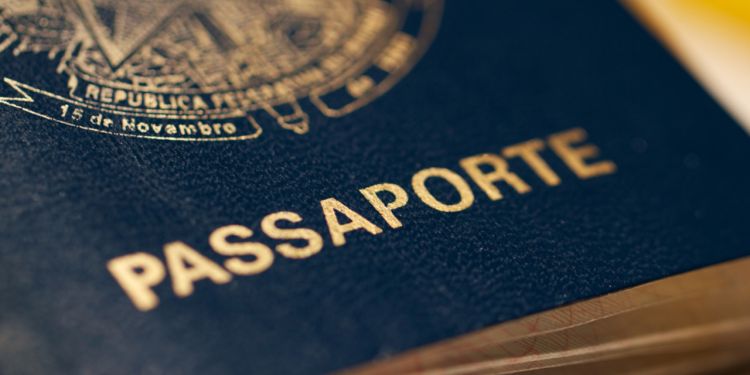
Brazil is the largest country in South America, as well as Latin America. It's an attractive place to visit due to its diverse topography, from its beaches to the Amazon rainforest, the culture, and cuisine. Below is some information to make your travel to Brazil easier.
Visas
In general, if your country needs Brazilians to apply for a visa to enter, then you'll need one to enter Brazil. Nowadays, most countries are exempted from getting a tourist visa. This means if you're staying in Brazil for under 90 days, you won't have to get a visa for entry. Just make sure your passport is valid for at least six months past your date of entry.
Some exceptions to this are the countries of Dijibouti and Venezuela. Djibouti citizens will have to apply for a tourist visa, regardless of how long they're staying in the country. As for Venezuelan citizens, they'll need to apply for a visitor visa if they're staying for over 60 days.
In addition, if you're from the following countries, you'll need a tourist visa issued on a Laissez-Passer: Bhutan, the Central African Republic, or Taiwan. Basically, these are special tourist visas given to people who are from countries that aren't recognized by the Brazilian Government.
To apply for a tourist visa, contact the Brazilian consulate that services your area of residence. If there's no consulate, contact the Brazilian embassy.
To be sure of whether or not you need a visa to enter Brazil, you should consult the nearest Brazilian consulate or embassy to determine what's required.
Once in Brazil, visitors may be able to extend their stay by an additional 90 days by visiting an office of the Federal Police. Extensions are easy to get and they're almost always granted. However, do note that you can only get one extension, so make sure you have finite plans to leave afterward.
Visitors of any nationality aren't permitted to work in Brazil without first obtaining a work permit.
Getting there
There are, fortunately, several ways you can travel to Brazil. And most methods are quite comfortable as well. Below are some of the common ways people get to Brazil.
Flying
You'll probably travel to Brazil by plane. Numerous airlines fly directly to Brazil from Europe and the US, although the main national carriers are LATAM, Azul, and Gol. Most international flights arrive in either Rio de Janeiro or São Paulo, but there are also some direct flights from Europe to Fortaleza and Recife on Brazil's northeast coast.
Good to know:
If you're flying through Rio to another destination in Brazil, you may be able to request a stopover in Rio of up to three days at no additional charge. This service is rarely advertised. If interested, you'll need to inquire about the airline or travel agent. Do note that because the travel industry has taken a huge hit from the pandemic, you might not be able to find these deals. However, as things slowly return to normal, you should be able to find more and more of these deals popping up.
If you'd like to visit a few destinations within Brazil, consider purchasing a Brazil Airpass, which is available from GOL, Azul, and LATAM airlines. Do note that the situation with the Brazil Airpass is the same as with the Rio stopover; passes may not currently be available, but once the pandemic's completely over and things go back to normal, you should be able to find the Brazil Airpass for sale again. The price will depend on the number of destinations but is quite reasonable. To purchase the airpass, you'll first need to purchase a return (roundtrip) ticket to Brazil. Also note that date and destination changes aren't generally permitted once an airpass has been purchased, so plan carefully! See below for links to more information.
Taking a cruise
Another travel option that you may not have considered is taking a cruise to Brazil. Rio is a common cruise destination these days, with Royal Caribbean, Norwegian, Carnival, and Celebrity all calling at The Marvelous City. Most passenger boats (including cruises) stop off mainly in Rio, so if you're planning on staying there for a while, this can be a good choice. The dock you'll most likely come in at is Porto Maravilha.
However, Rio isn't the only port you can stop off at. Other ones include Santos in São Paulo, Recife, Salvador, Fortaleza, Vitória, and Manaus.
If cruises are too luxurious for you, but you still want to travel to Brazil by boat, then there are some cargo vessels that offer passenger services. However, these are far and few. You might have some luck traveling from Italy by Grimaldi Freighter. Or you might try cargo vessels departing from European countries. These include Tilbury in England, Antwerp in Belgium, and Hamburg in Germany.
Taking a train
You might've gotten excited about this option, but sadly, it's not a very convenient option. Nevertheless, if you really want to travel by train, you should consider the route that goes between Santa Cruz, Bolivia and Corumbá, Brazil. Don't expect it to be a fun journey though, as it's been nicknamed Trem da Morte (Train of Death).
But you shouldn't let the name of the train scare you. If anything, the trip is rather boring rather than dangerous. Don't count on seeing anything interesting out the window, as the route only takes you through scrublands that look the same all throughout your journey.
If you're considering going to the Pantanal or Bolivia, or are coming from those areas, then taking a train might just be worth it to get to Brazil. Otherwise, we'd suggest you try other methods on this list to get to Brazil in more affordable and fun ways.
If you want to take a train to Brazil, check Ferroviaria Oriental's website to plan your journey.
Driving
If you're already in South America, and you've got access to a car (and have a valid driver's license), then you can drive yourself over to Brazil. This can be a great way to take control of your trip and to see the sights slowly as you make your way over.
There are several options available for driving to Brazil. You can enter the borders from Argentina, Paraguay, Uruguay, and Venezuela. The entry points are Foz do Iguaçu, Jaguarão, and Santa Elena de Uairén, respectively.
Taking a bus
If you don't have a valid driver's license but would like to get to Brazil by car, then you can take one of the buses that come into the country. Your options include:
- Buenos Aires, Argentina
- Asunción, Paraguay
- Montevideo, Uruguay
- Lima, Peru
- Santiago, Chile
You'll have to check in each country for the specific bus companies, lines, and schedules. But one, in particular, you should seek out is Pluma, as it's a company with a good reputation, plus it offers international connections. Another you can try is Crucero del Norte, which is in Argentina.
Finding good deals
Moving or even visiting Brazil can be an expensive ordeal already. You shouldn't have to spend a fortune on travel tickets, or else that'd put a huge burden on your finances.
When booking airline tickets, you should use comparison sites. Google itself does a great job of showing you all available options (and prices), but you can also use a site like Skyscanner. There are also other sites like Jack's Flight Club, where you can subscribe for emails and they'll notify you of flight deals that are just too good to pass up. This can also help you afford trips back home to visit family in the future.
If you need to stay in a hostel, hotel, or even couch surf when you first get to Brazil, then there are ways to do all this cheaply as well. For hostels, try Hostelworld, and for hotels, try Booking.com or Hotels.com. To couch surf, try Couchsurfing.
In general, you'll want to avoid traveling to Brazil in February. This is when Carnival occurs, and people flock from all over the world to attend and witness this event. In turn, this drives up prices for everything, including airfare and hotel room costs. Visiting or moving in the off-season is best. For reference, December to March is high season, so everything will cost more in this period as well.
Getting around Brazil
Once you're in the country, you'll probably be eager to explore your new country of residence. In general, you won't want to walk places, as it's not easy. Not to mention, there are also many pickpocketers and muggers, which can make it dangerous to walk around, especially at night. Drivers in the country can also be crazy, so there's the risk of being hit by a car as well.
The good news is, the public transportation system is fantastic. You have buses and metros available to take.
There's good coverage with buses in Brazil. Fares aren't expensive, costing around $1 USD per ticket.
As for the metro, the larger cities have this public transportation option available, such as Rio de Janeiro, São Paulo, Belo Horizonte, and Salvador. If you're going to be in these cities long-term, it can be worth it to buy a metro pass, as these can give you small discounts. Plus, the rechargeable card saves time since you don't have to buy a ticket each time you need to get around. Also, most metro fares can be bus fares to further save you some money, as these will give you discounts too.
Taxis are also an option, especially since they're typically cheaper when compared to those found in North America and most of Europe. Just make sure that as in other countries, you don't get ripped off. Make sure they use the taximeter and if you take a taxi from the airport or a bus terminal, you can pay in advance to make sure you're not taken advantage of (it'll be a little more expensive than regular taxis).
In recent years, rideshares (like Uber) have become popular. These cars offer rates that can be half of those offered by taxis, so it's no wonder why so many people use them. So if you want to save some money and ensure you're not being scammed, you should take an Uber.
If you'd like to take a day trip out on your own, but don't have your own car yet, you can consider renting a car. It should cost around R$125 a day (Brazilian reals); the price might be lower if you rent it for multiple days. However, you should be a very confident driver, as Brazilians are known to be crazy at driving. Not only that, but the roads aren't in good condition and vehicles are often broken into.
Things to see and do
While Brazil likely conjures up visions of the Amazon rainforest or beautiful beaches, Brazil is very geographically, climatically, and culturally diverse. It is the world's fifth-largest country, after all! There truly is something for everyone, from beaches to sports to cultural festivals, to a nascent wine industry.
Other important things to know
Pickpocketing is common in Brazil, so regardless of if you're just visiting or moving to this country, you should always keep your wits about you. Be mindful of what you're carrying around with you, and don't flash your expensive jewelry, phone, or camera. Keep your wallet somewhere secure and hard for pickpocketers to get.
In most areas, it's not safe to walk out at night. Always take a taxi or Uber if possible. If you're a female, then you need to be extra-cautious since criminals usually target women who are alone.
When withdrawing cash at an ATM, try to choose one that's indoors. If you must use one outdoors, have a friend be your lookout.
Useful links:
Brazilian diplomatic missions (embassies and consulates) worldwide
We do our best to provide accurate and up to date information. However, if you have noticed any inaccuracies in this article, please let us know in the comments section below.












Comments
2